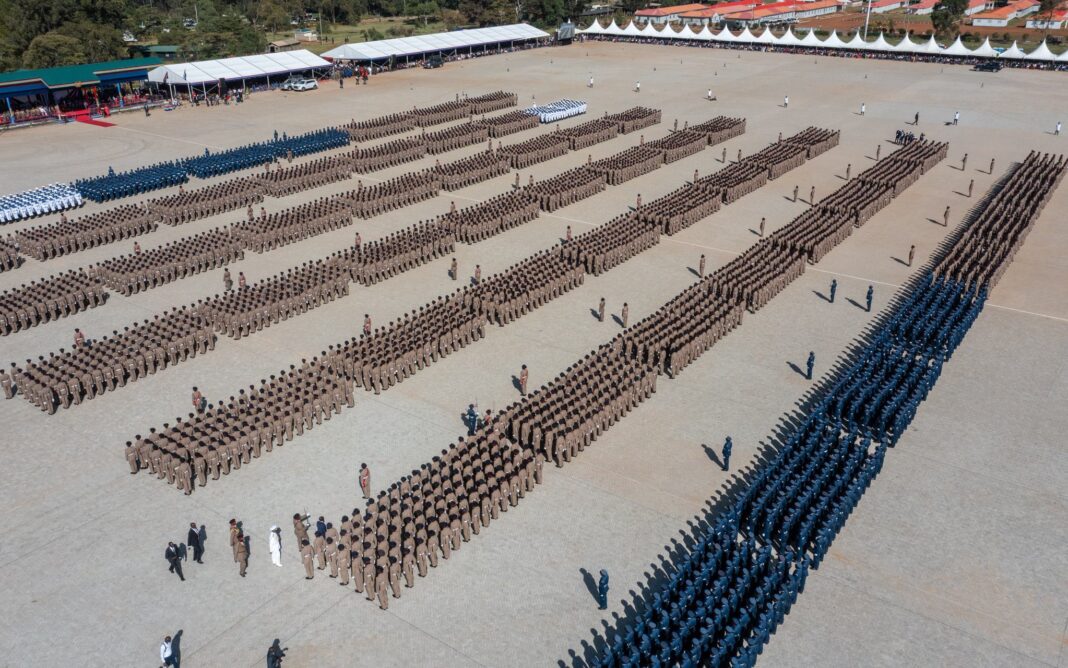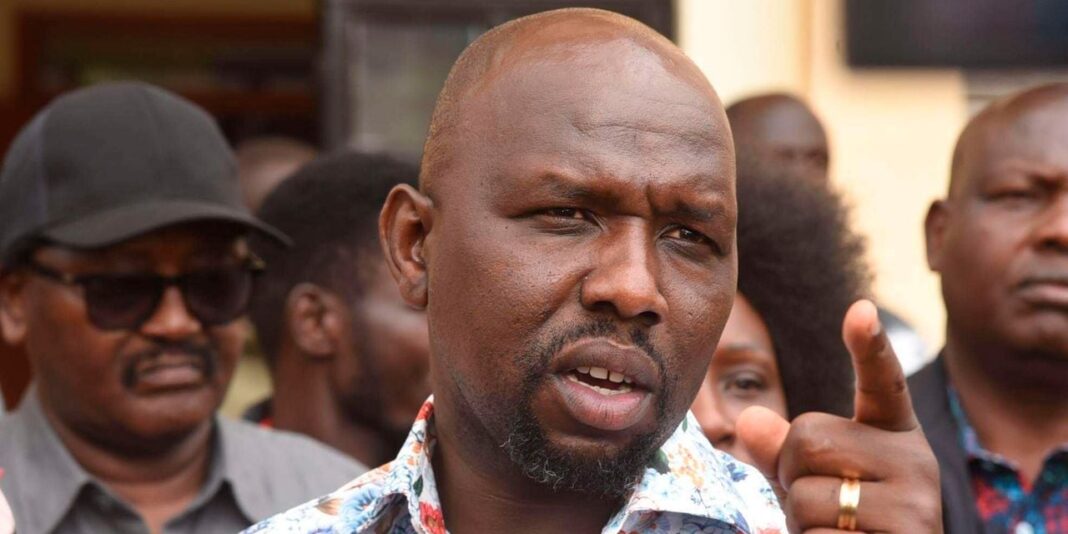A brewing storm of discontent has engulfed the Kenya Defence Forces following the government’s controversial decision to scrap subsidised meals and implement a Pay-As-You-Eat system that forces deductions directly from soldiers’ payslips.
The new policy, which took effect on August 1, 2025, marks the end of a long-standing tradition of free mess meals that military personnel have relied on for decades.
Under the new system, lunch allowances are being automatically deducted from soldiers’ salaries and locked into a military-managed digital booking application, a move that has sparked widespread resistance across military ranks.
“It’s no longer a choice,” said an officer based in Eldoret, speaking on condition of anonymity. “They’ve decided to force-feed us through deductions.”
The policy change, communicated to military units in late June, represents a fundamental shift in how the military manages meal provisions for its personnel.
According to internal memos obtained by media outlets, the KDF has directed that meal cash allowances be channelled through the Defence Savings and Credit Co-operatives Society to prevent service personnel from committing the funds to loans.
However, this directive comes too late for many junior officers who had already committed their payslips to existing loan obligations.
The timing of the policy implementation has created particular hardship for lower-ranking military personnel.
Sources within the military indicate that many junior officers had already secured loans against their expected meal allowances before the directive was issued, meaning they now face reduced take-home pay for the coming months as they service existing debts while simultaneously having meal funds locked away.
Under the new arrangement, half of the meal allowance is locked in the KDF Booking meal app, with unused portions only released at the end of each month, while the remaining portion is transferred to officers’ Sacco accounts.
This financial restructuring has been seen by many as an inducement to use the new lunch programme, particularly after several junior officers initially chose to forgo meals entirely rather than participate in the system.
The resistance reflects deeper concerns about autonomy over meal choices and financial planning, with many viewing the forced rollout as a breach of trust regarding their compensation packages.
The meal allowance under scrutiny, officially known as the ration cash allowance, was introduced in 2000 following the scrapping of free breakfast and dinner for military personnel.
KDF officers had been receiving subsidised lunch until June 30, 2025, when the programme officially ended.
This is not the first time the government has attempted to end free meals for KDF officers, as previous efforts have failed to gain traction, but the current implementation appears more forceful and comprehensive than past attempts.
Military leadership has defended the policy shift, citing inefficiency and ineffectiveness of the former subsidy system.
In communications to various units, KDF headquarters described the PAYE system as representing a significant shift towards a more accountable and sustainable logistics model within the military.
The current system emerged from extensive deliberations by a committee established in October 2024 to examine the transition, with their mandate including developing implementation strategies following consultations with various stakeholders.
The committee’s recommendations were presented to the Service Commanders Committee Meeting on October 29, 2024, with final implementation strategies outlined in December 2024.
To facilitate the transition, Army Headquarters directed units to demand Ration Scale Four for 14 days as seed capital, with proceeds expected to form a self-sustaining revolving fund administered by PAYE management committees at formation, base, and unit levels.
The policy change comes at a time when the government is implementing various austerity measures across different sectors.
Military sources suggest this could be part of broader efforts to reduce public expenditure on what some officials view as non-essential benefits.
The resistance within KDF ranks reflects broader concerns about the government’s approach to implementing policy changes without adequate consultation with affected parties, particularly given the forced nature of the deductions.
As the policy enters its implementation phase, military leadership faces the challenge of managing widespread discontent while maintaining operational effectiveness.
Commanders have been instructed to leverage existing messaging infrastructure to support the programme, with additional needs to be addressed progressively in the 2025/26 financial year.
However, the early resistance suggests that winning over hearts and minds within the military may prove more challenging than anticipated.
The controversy highlights the delicate balance between fiscal responsibility and maintaining morale among security forces, whose support remains crucial for national stability.
The success or failure of the PAYE system may serve as a template for similar reforms in other government institutions, making the current military experiment a closely watched case study in public sector reform.
How the government navigates this tension may have implications beyond the military, potentially affecting other public sector reforms on the horizon.
The forced implementation of what many officers view as a fundamental change to their working conditions has created a test case for the administration’s approach to institutional reform and its relationship with the security apparatus that underpins state stability.


